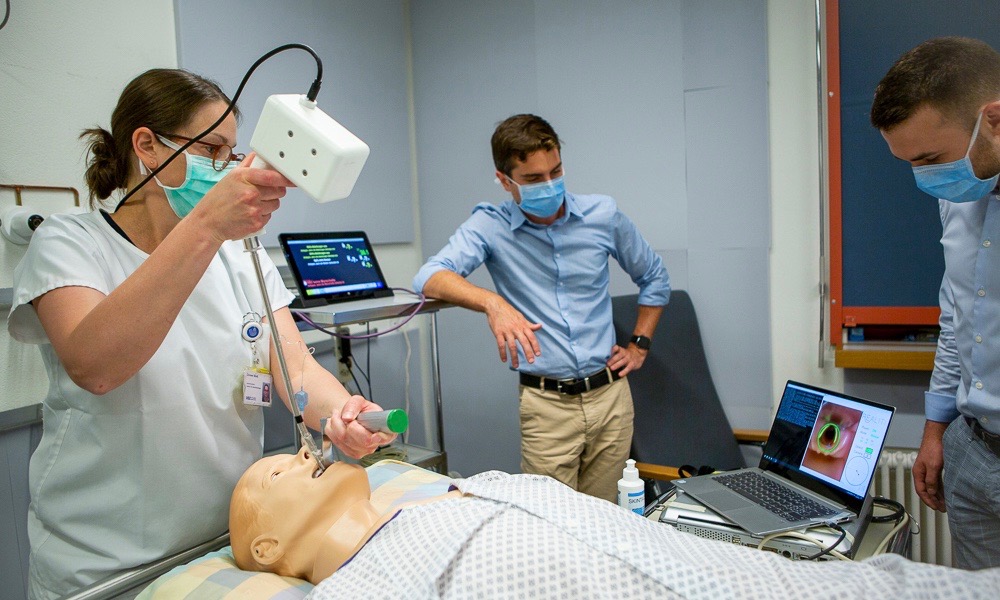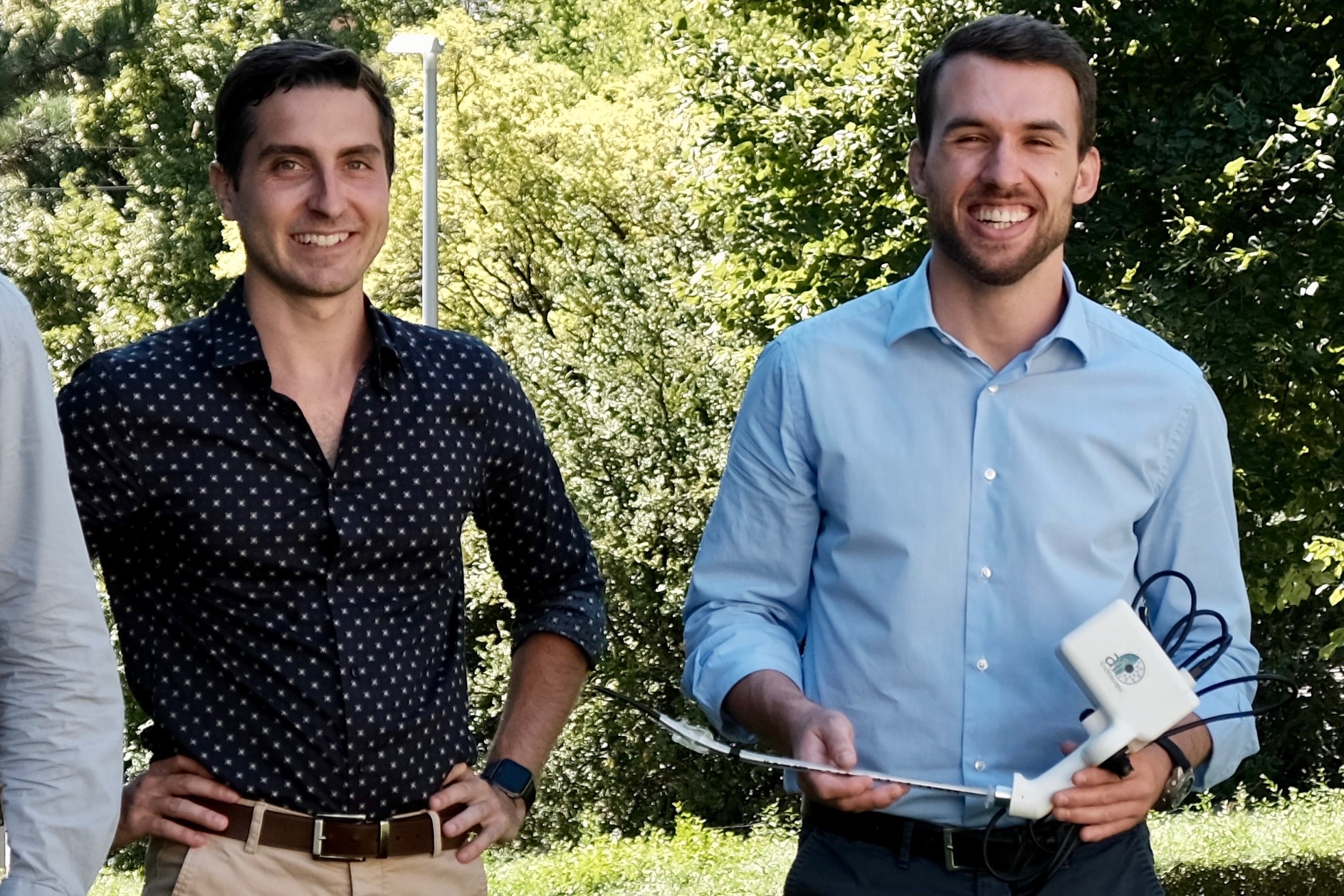Navigation auf uzh.ch
Navigation auf uzh.ch
Dave Gage and his team won the final pitch in the Innosuisse Business Concept Course. With aiEndoscopic they are developing an intubation aid for emergency physicians and anesthetists.

How did the REALITI project get started, Mr. Gage?
Around 50 million intubations are performed worldwide every year. About 10% of these are considered difficult and lead to serious consequences. Professor Peter Biro from the University Hospital Zurich (USZ) had the idea of developing a device that would help medical professionals perform intubations. He went to the MultiScale Robotics Lab at ETH with the idea, and I began working on the REALITI project for my master’s thesis.
In the course of the corona pandemic there has been a lot of talk about artificial respiration. Does your project have to do with COVID-19?
A recent study shows that about 3% of all confirmed COVID-19 cases in China lead to intubation. Considering the current 70 million recorded COVID-19 cases, COVID-19 could account for over 2 million intubations to date, and these intubations are typically more difficult to perform. The time to perform COVID-19 intubations is especially critical because the infected patients typically have less spare oxygen in their bodies.
Due to direct exposure to infected patients, medical professionals who are most experienced in performing intubations are becoming ill and are unable to perform intubations. This leads to intubations being performed by less experienced personnel. The increase in difficult intubations performed by less experienced personnel is a COVID-19 pain-point that REALITI could address.
How should a layperson imagine aiEndoscopic’s solution?
Our endoscope consists of a shaft with a bendable section and a camera on the tip. You insert REALITI into the patient’s mouth and control the bendable section with a joystick. When the device detects the anatomy of the patient from the camera video, the REALITI system can then control itself. When you’ve reached the windpipe of the patient, you then push the tracheal tube off the REALITI device into the patient, successfully opening a connection to the patient’s lungs.
The ‘AI’ in the company name stands for artificial intelligence. Where is it used?
The computer vision algorithm makes REALITI unique. Our software can interpret the images from the camera in real time. When the intubating person presses the “Auto Mode” button, the tip of the endoscope automatically aligns with the windpipe. REALITI drives its bendable section just as an expert in intubation would. This way, REALITI will assist any user to perform a safer and easier intubation.
How did you and your team profit from participation in the Business Concept Course?
The Innosuisse Business Concept Training was very helpful. We have been able to use this experience to foster relationships with many of the main players in the MedTech startup communities. We have learned a lot about designing our business tailored to our target market. We were also able to use this opportunity to pitch to multiple investors, and garner significant publicity.

Philipp Ganz recently joined your team as a CEO. What was his motivation to join and what role will you take in the future spin-off?
Philippe and I have been friends for years, we met during our master’s studies for Biomedical Engineering at ETH. Recently, Philippe has gained valuable business and quality assurance experience in a MedTech company. He later left the company to pursue an entrepreneurial career, and I told him that I was looking for a partner in my startup. He was excited to join, having known about my project, and he started working on the business right away. With Philippe as the CEO, I can focus on the technology development as the CTO. Philippe, Prof. Biro, and I are a small team, so we can be flexible with our roles in the company and remain agile with our lean startup.
REALITI is not yet approved. How do you bridge the step from a lab invention to a product on the market?
It is not a coincidence that this product came about in the innovation ecosystem in Zurich. The University of Zurich supported me during 18 months with the UZH Entrepreneur Fellowships, which gave me enough time to develop the first prototype, work on the business strategy, and prepare the clinical studies. The USZ Innovation Hub will help us over the coming months to get approval for clinical trials so we can collect videos of larynxes for training our AI. These opportunities have been a great help towards bringing REALITI to the market, and I would encourage anyone with a great idea to use these opportunities too.
Innovation Hub